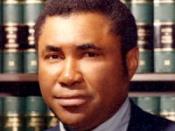This paper will discuss protections available in the United States against employer retaliation in the workplace. This subject was chosen after review of a current United States Supreme Court case (oral arguments heard on October 6, 2008). This paper will describe the case before the Supreme Court and describe the history of federal employment laws pertaining to employer retaliation. Also discussed will be the effectiveness of federal employment laws, obligations of employers and requirements concerning contract workers and union members.
"To appeal to the Supreme Court one applies to the Supreme Court for a writ of certiorari, which it grants at its discretion and only when at least three members believe that the case involves a sufficiently significant federal question in the public interest" (Law.com, 2008).
Certiorari was granted, January 18, 2008 for Crawford v. Metropolitan Government of Nashville and Davidson County, Tennessee (Crawford v. Nashville). The question before the court is: "Does the anti-retaliation provision of section 704(a) of Title VII of the 1964 Civil Rights Act protect a worker from being dismissed because she cooperated with her employer's internal investigation of sexual harassment" (Runkel ed.,
2008).
AsideThis case was discovered as the writer was investigating federal sexual harassment statutes. The sexual harassment subject was first encountered by this writer in the early 1980s, as three female employees made the assertion that this writer had "treated them differently". (A brief description of the circumstances will be disclosed and the end of this paper.)HistoryThe history of anti-retaliation laws in the United States is difficult to determine. Laws have differed greatly between the States. Generally plaintiffs have had difficulty when asserting and attempting to prove that an employer has retaliated. Anti-retaliation laws have grown out the Civil Rights Act of 1964. "The nation's first comprehensive law making it illegal...


